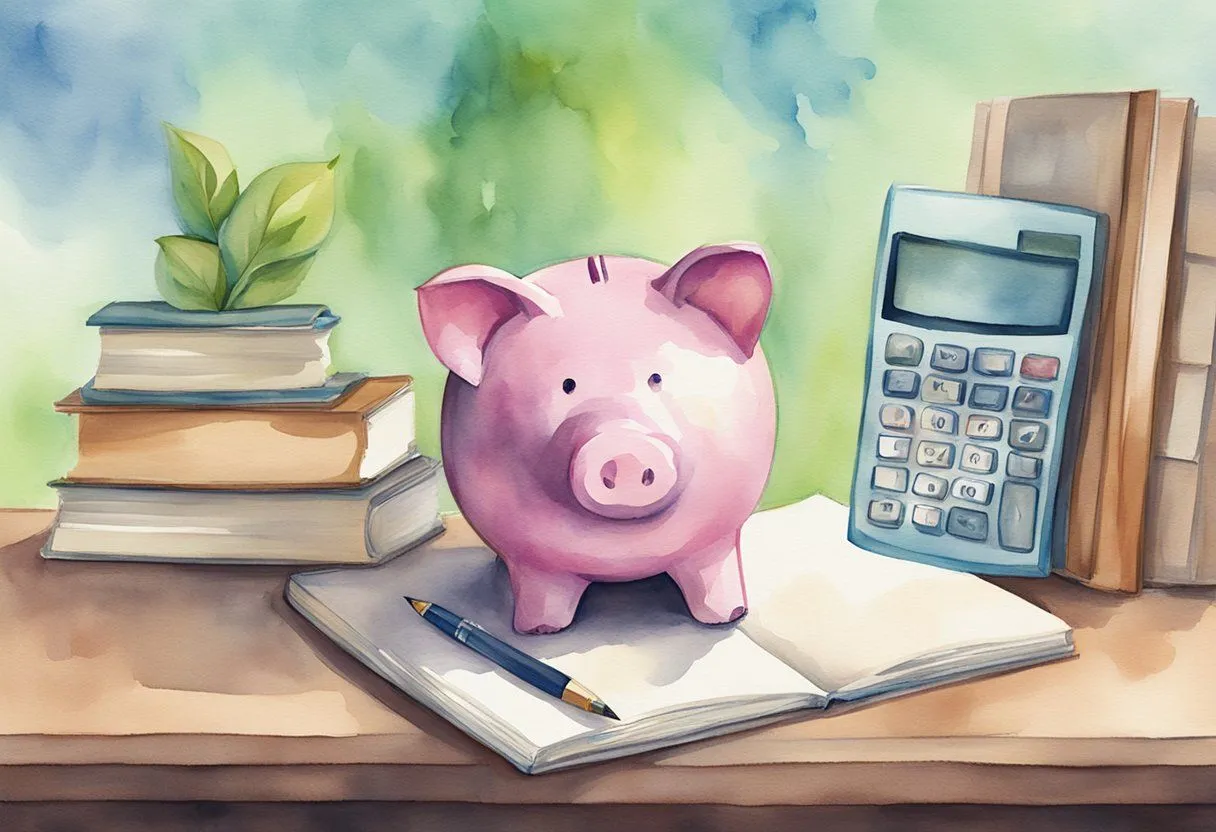The Art of Budgeting: A Guide to Mastering Your Finances
Budgeting is an essential skill for anyone who wants to take control of their finances. It is the process of creating a plan to manage one’s income and expenses effectively. The art of budgeting involves mastering the skills required to create a budget that works for you.
Creating a budget is not just about restricting oneself from spending money. It is about making informed decisions about how to allocate funds to achieve financial goals. The art of budgeting involves identifying one’s priorities and aligning them with their financial goals. It requires discipline, commitment, and a willingness to make sacrifices to achieve financial stability.
Mastering the art of budgeting is essential for anyone who wants to achieve financial freedom. It is a skill that can be learned and practiced over time. With the right mindset and approach, anyone can develop a budget that works for them and achieve their financial goals.
Understanding Your Financial Goals

Budgeting is an essential aspect of managing personal finances. However, before creating a budget, it is important to understand your financial goals. By understanding your financial goals, you can create a budget that aligns with your priorities and helps you achieve your objectives.
Setting Realistic Goals
Setting realistic goals is the first step towards understanding your financial goals. It is important to set goals that are achievable and align with your current financial situation. For example, if you have a lot of debt, it may not be realistic to set a goal of saving for a down payment on a house. Instead, your goal may be to pay off your debt first.
To set realistic goals, it is important to consider the following factors:
- Income: Your income is a key factor in determining your financial goals. If you have a low income, your goals may be more focused on paying bills and meeting basic needs. If you have a higher income, you may have more flexibility in setting goals.
- Expenses: Your expenses also play a role in setting realistic goals. If you have high expenses, you may need to prioritize paying off debt or reducing expenses before setting long-term goals.
- Timeframe: The timeframe for achieving your goals is also important. Setting short-term goals can help you stay motivated and see progress quickly. Long-term goals require more planning and may take several years to achieve.
Aligning Goals with Budget
Once you have set your financial goals, it is important to align them with your budget. Your budget should reflect your priorities and help you achieve your goals.
To align your goals with your budget, consider the following:
- Prioritize: Prioritize your goals based on their importance and urgency. For example, paying off high-interest debt may be a higher priority than saving for a vacation.
- Allocate funds: Allocate funds in your budget towards achieving your goals. This may mean reducing expenses in other areas or finding ways to increase your income.
- Monitor progress: Regularly monitor your progress towards achieving your goals. This can help you stay motivated and make adjustments as needed.
By understanding your financial goals and aligning them with your budget, you can take control of your finances and achieve your objectives.
Creating Your Budget

Creating a budget is an essential step towards mastering your finances. It enables you to track your income and expenses, allocate your resources effectively, and achieve your financial goals. Here are the three key steps to creating your budget:
Income Assessment
The first step in creating a budget is to assess your income. This includes all the money you receive, including your salary, bonuses, and any other sources of income. It is important to be realistic and accurate in your assessment, as it will form the foundation of your budget.
Expense Tracking
The next step is to track your expenses. This involves recording all the money you spend, including your bills, groceries, and any other expenses. It is important to be thorough in your tracking to ensure you have a complete picture of your spending habits.
Budget Allocation
Once you have assessed your income and tracked your expenses, it is time to allocate your resources effectively. This involves creating a budget plan that outlines how much money you will allocate to each expense category. It is important to prioritize your expenses and allocate your resources accordingly to achieve your financial goals.
To make the budgeting process easier, consider using budgeting tools such as spreadsheets or budgeting apps. These tools can help you track your income and expenses, create a budget plan, and monitor your progress towards your financial goals.
In summary, creating a budget is an essential step towards mastering your finances. By assessing your income, tracking your expenses, and allocating your resources effectively, you can achieve your financial goals and take control of your financial future.
Implementing Your Budget

Once you have created a budget, the next step is to implement it. This means putting your plan into action and sticking to it. Here are some tips on how to successfully implement your budget:
Sticking to Your Plan
One of the most important aspects of implementing your budget is sticking to your plan. This means following the budget that you have created and not deviating from it. Here are some ways to help you stick to your plan:
- Keep track of your spending: By keeping track of your spending, you can ensure that you are staying within your budget. Use a spreadsheet or budgeting app to track your expenses.
- Avoid impulse purchases: Try to avoid making impulse purchases, as these can quickly add up and throw off your budget.
- Set realistic goals: Make sure that the goals you set for yourself are realistic and achievable. If you set unrealistic goals, you may become discouraged and give up on your budget.
Adjusting When Necessary
While it is important to stick to your budget, it is also important to be flexible and adjust your budget when necessary. Here are some situations where you may need to adjust your budget:
- Unexpected expenses: If you encounter unexpected expenses, such as a medical bill or car repair, you may need to adjust your budget to accommodate these expenses.
- Changes in income: If your income changes, either due to a raise or a job loss, you may need to adjust your budget accordingly.
- Re-evaluating your goals: If you find that your goals are no longer realistic or achievable, you may need to re-evaluate your budget and make adjustments.
By sticking to your plan and being flexible when necessary, you can successfully implement your budget and take control of your finances.
Reviewing and Improving Your Budget
Creating a budget is just the first step towards financial stability. It’s important to periodically review and improve your budget to ensure that it continues to meet your needs. Here are some tips for reviewing and improving your budget.
Periodic Reviews
It’s important to review your budget periodically to ensure that it’s still relevant and effective. Here are some things to consider when reviewing your budget:
- Income changes: Have you experienced any changes in your income? If so, you may need to adjust your budget accordingly.
- Expenses changes: Have your expenses changed? Are there any new expenses that you need to account for in your budget?
- Debt reduction progress: If you have debt, it’s important to track your progress and adjust your budget as needed to ensure that you’re making progress towards paying it off.
- Savings progress: If you’re saving money, it’s important to track your progress and adjust your budget as needed to ensure that you’re meeting your savings goals.
Making Necessary Changes
If you’ve identified areas where your budget needs improvement, it’s important to make the necessary changes. Here are some tips for making changes to your budget:
- Prioritize your spending: Identify your most important expenses and prioritize them in your budget. This will help ensure that you’re meeting your most important financial goals.
- Cut back on unnecessary expenses: Look for areas where you can cut back on unnecessary expenses. This will help free up money that you can use to meet your financial goals.
- Increase your income: Consider ways to increase your income, such as taking on a side job or asking for a raise. This can help you meet your financial goals more quickly.
- Automate your budget: Consider using budgeting software or apps to automate your budget. This can help you stay on track and make adjustments more easily.
By periodically reviewing and improving your budget, you can ensure that it continues to meet your needs and help you achieve your financial goals.



